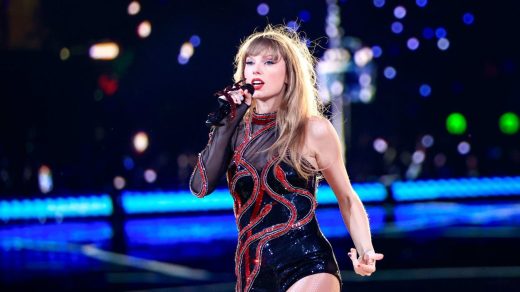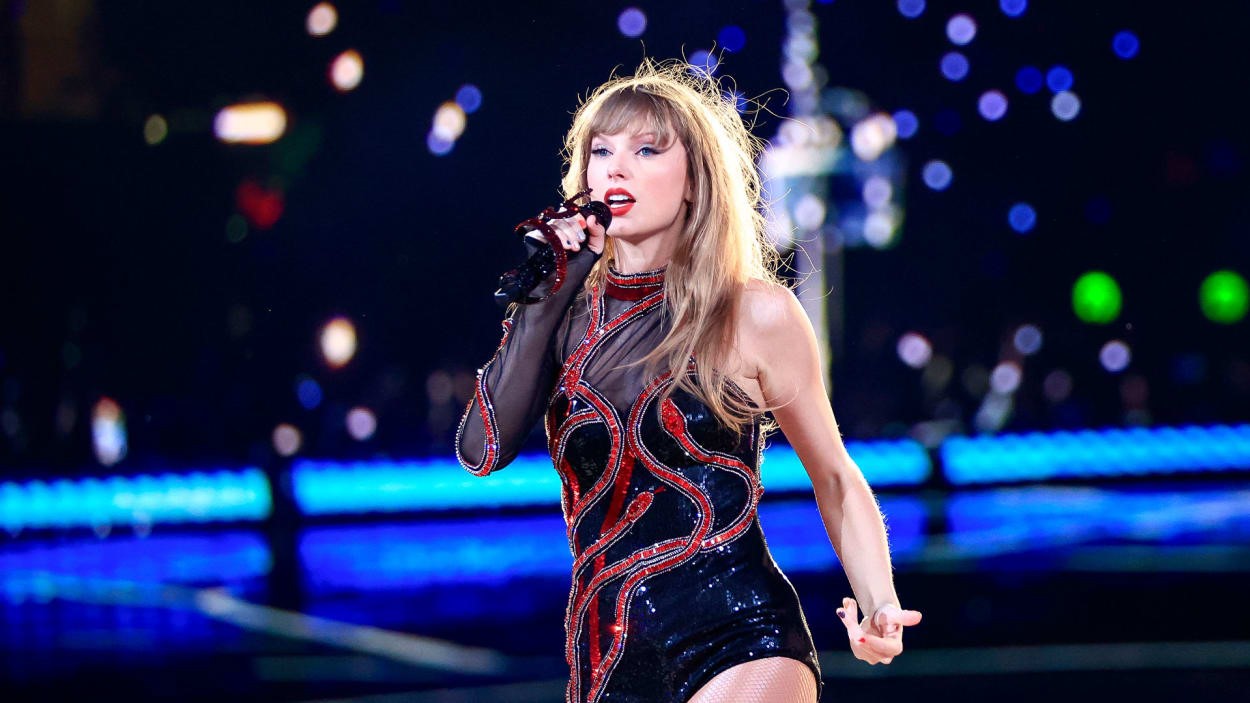TikTok users: What to know about Universal Music Group pulling Taylor Swift, the Weeknd, and others from the platform
Universal Music Group is ready to pull its catalog of songs and artists—the industry’s most expansive—from TikTok, unless the two companies can hash out a new contract that addresses Universal’s concerns about artist royalties, the deepfakes flooding the platform, and problems curbing hate speech and harassment on the app.
Late on Tuesday, Universal went public with a letter (titled “Why we must call time out on TikTok”) that accused the social network of initially treating the above issues with “indifference,” then pivoting to “intimidation” as negotiations reached the 11th hour.
Universal says that in their most recent talks, TikTok made an even worse offer. TikTok fired back in a terse four-sentence statement released Tuesday night, calling Universal’s narrative “false” and its actions “self-serving,” adding that it can’t stop the company from “walk[ing] away from the powerful support of a platform with well over a billion users.”
The infinite stream of songs posted to TikTok without any permission has long been a bane for the app, where a majority of content has music of some sort. In recent years, TikTok has been inundated with copyright removal requests (nearly 200,000 in the first half of 2023). Its handling hasn’t impressed the music industry much, and one of TikTok’s solutions has been to enter into agreements directly with the labels and producers to give TikTok users access to their music in exchange for royalties, à la Spotify. TikTok parked these licensed songs in a Commercial Music Library, a “pre-cleared library of 1 million songs,” which it made available to users and brands back in May 2022.
These are the licenses Universal is now threatening to revoke. If that happens, TikTok users will no longer be allowed to post the music—unless they negotiated permission separately—created by several big names spanning multiple generations: Taylor Swift, Lady Gaga, the Weeknd, Bad Bunny, Billie Eilish, and Kendrick Lamar, alongside Coldplay, U2, Elton John, Bob Dylan, and thousands of others.
Universal justified the move by arguing that TikTok has failed to take seriously three important issues. It says the rate TikTok pays artists is “a fraction” of what “similarly situated major social platforms pay.” It also claims the number of deepfakes of artists (including pornographic ones) and AI-generated songs have proliferated on the platform to a point that feels “nothing short of sponsoring artist replacement by AI.” Finally, Universal argues that TikTok still isn’t keeping pace with copyright violations, likening the problem to online Whac-a-Mole.
Aside from Universal’s massive catalog vanishing from TikTok’s library, the pressing question for many users is, what happens to old videos that were fine at the time, but now infringe on copyright?
TikTok didn’t respond to questions from Fast Company asking if Universal Music Group’s content suddenly switching to unlicensed could complicate copyright enforcement further. Right now, about 12 million TikTok videos use the hashtag #taylorswift. #Shakeitoff has 170,000, while #1989 has almost 600,000 with 8.5 billion views. Many of these include snippets of Swift’s music, or her performing at concerts, or fans singing to the car stereo.
Technically, even posting a live performance can violate the Digital Millennium Copyright Act. So what happens to those videos? Do they get muted? Removed from TikTok entirely? How should users try to determine which videos may no longer pass muster? Universal hasn’t discussed any of the practical implications yet.
TikTok does have a tool in place to auto-detect copyrighted sounds, then mute offending content. Users can enable a feature that will scan videos to check for likely copyright infringement. It’s unclear whether TikTok would retroactively use this to comb through existing videos. Even if it did, it’s unlikely every instance of “Shake It Off” would be caught. Crafty users continue to find novel ways to evade copyright detection, with some tweaking the song itself—which veers fast into fair-use territory (just ask Weird Al).
Universal didn’t respond to Fast Company when asked about its strategy to seek copyright enforcement against what would seem to be an eye-boggling number of posts. It’s complaining now that TikTok isn’t offering “meaningful solutions” to protect copyright, but what if it says videos that used to be okay have started infringing on Universal’s rights, and creators want to fight it?
Meanwhile, Universal’s artists include some prolific TikTok users. Neither company responded to inquiries about what was likely to happen to official accounts, and if exceptions might be made so artists could post their own music.
(14)



